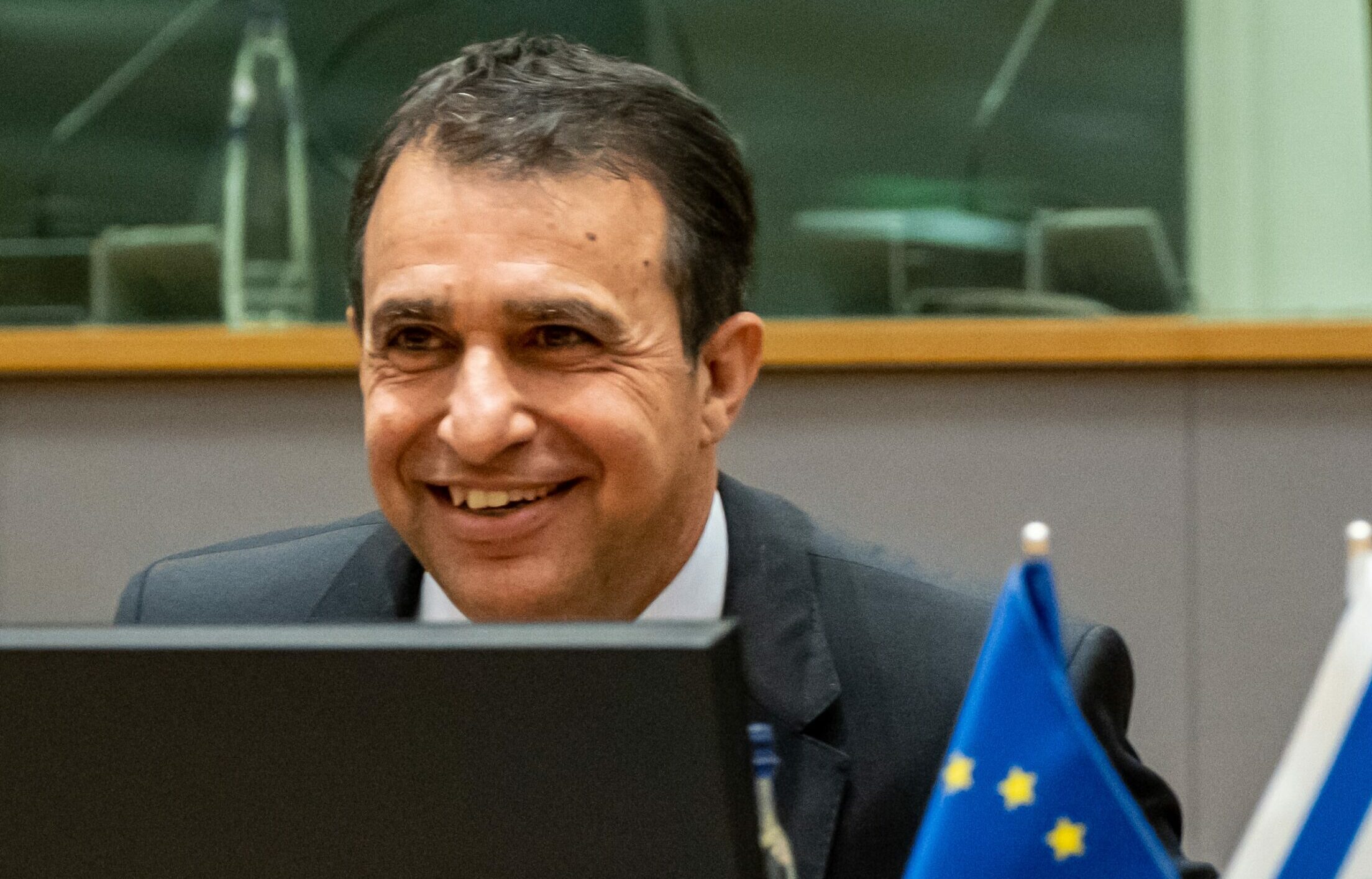In March 2023, ESD interviewed his excellency Ambassador Haim Regev, Head of the Mission of Israel to the EU and NATO. The interview was conducted by ESD’s Curtis Hand.
Ambassador Regev began his assignment as Head of the Mission of Israel to the EU and NATO in August 2021. Previously, he served as the Head of the Middle East Division in Israel’s Ministry of Foreign Affairs (2016 to 2021). In addition, he served as Chief of Staff to the Minister of Foreign Affairs, Gabi Ashkenazi (2020 to 2021). Following the signing of the ‘Abraham Accords’, Ambassador Regev led the normalisation process between Israel and the Arab countries. He served overseas as Deputy Chief of Mission at the Embassy of Israel in Oman (1996 to 1998), Deputy Consul General to Florida (1998 to 2001) and as Counsellor for Congressional Affairs at the Embassy of Israel in Washington D.C. (2004 to 2008). In Jerusalem, Ambassador Regev served in the Department for Middle East Economic Affairs (2001 to 2004) and as Director of the Coordination Department in the office of the Director General (2013 to 2016). Ambassador Regev was born in Israel, and he holds a B.A. in Political Science and Middle Eastern Studies and an MBA with Honors, both from Tel-Aviv University.
Q: What is the role of Israel’s Mission to NATO and why is it important?
A: Israel-NATO relations are based on shared values and a similar threat perception. Israel’s mission to NATO works to advance Israeli interests in terms of political legitimacy, influence and force build-up of the Israeli defence and security establishment. For NATO, Israel is a valuable and reliable partner in an unstable region from which it can learn, in various aspects: from awareness raising to capacity building, force build-up and its operationalisation. Against the backdrop of Iranian aid to Russia in Ukraine, the alliance has a vested interest in learning from Israel regarding Iranian capabilities. In addition, Israel has an interest in strengthening the capabilities to operate with partners and here the NATO principles of interoperability are of great importance.
Q: How has the relationship between Israel and NATO evolved and, generally, what new dimensions will the ITTP framework address?
A: Israel has a broad and comprehensive cooperation agreement with NATO which includes a wide range of fields, such as: resilience, innovation, CT, Cyber, Women Peace and Security, Arms control, CBRN, climate change and others. We are in the midst of a process to re-formulate the frame of the partnership with NATO. The agreement includes all areas of existing and future cooperation.
In the last couple of years, the relations between the two sides are in a very positive trajectory. Last January, for the first time, the President of the State briefed the plenary of ambassadors (North Atlantic Council) and met the Secretary General, as well as former Prime Minister Bennett (Oct. 2021) and Foreign Minister Lapid (July 2021). In the past year, three heads of divisions from NATO (Political and Security, Intelligence and security and Emerging Security Challenges) visited Israel as part of the deepening cooperation between the two sides and almost every week there is an Israeli activity at the NATO headquarters. The most prominent examples of the cooperation between Israel and NATO: the fields of intelligence – including the exchange of information and the formation of joint assessments, the certification the IDF academy for field medicine as a NATO training centre and participation in various working groups whose purpose is power building.
Q: Why is Israel successful at defence industrial cooperation within NATO – does the fact that Israel is not so much a defence consumer as it is a defence partner for NATO affect this?
A: Since 2018, Israel has an agreement for cooperation with the NATO procurement agency NSPA, the agreement allows Israeli companies to sell through the agency to alliance members. We can’t provide data, but I can say that from a bilateral point of view the mechanism is working excellent especially these days that the countries have agreed for new procurement of equipment and weapons.
Q: Considering the close defence cooperation on professional, industrial, and political levels between NATO and Israel, is there a possibility of Israel joining NATO one day?…Or is there a better chance that Members of the Abraham Accords and NATO will cooperate more closely (i.e., intelligence sharing, joint exercises) to address shared regional (EMENA) challenges posed by State and Non-state actors (e.g., Iran, Daesh, et al)?
A: First and foremost, NATO is a Euro- Atlantic alliance hence the allies are from the Euro- Atlantic region. In any case, Israel relies on itself when it comes to its security and defence. However, Israel – NATO relations are based on the sharing of values and Israel is a committed and reliable partner, in an unstable region. Although the relations run deep, there are many topics that we have not discussed, the potential is huge, and we can do a lot together even in partnership agreements. We are currently focusing on our threats and the Abraham accords and defence agreement with Morocco. We include NATO in this, the potential there is also great, and with the help of the new cooperation agreement, we hope to bring it to the next level.



